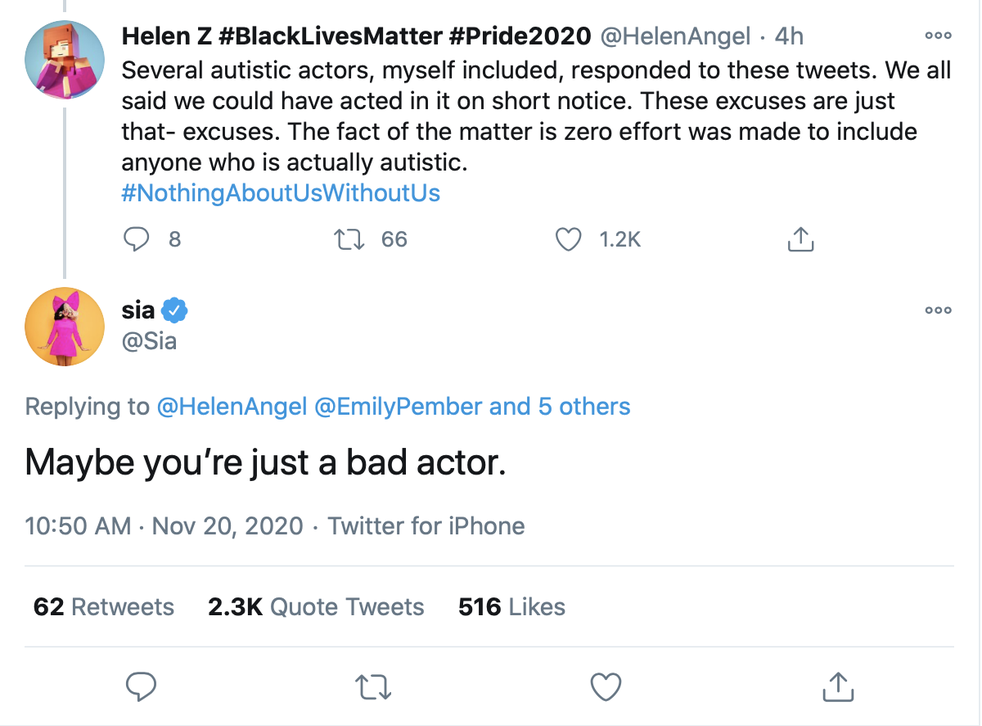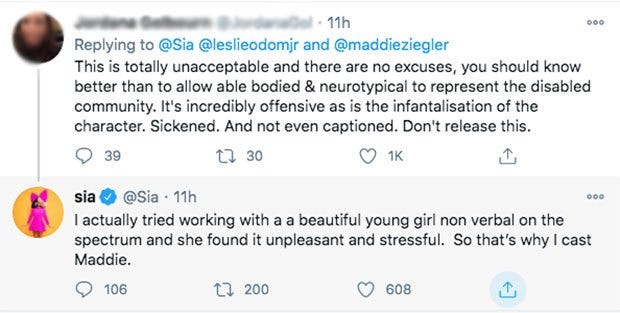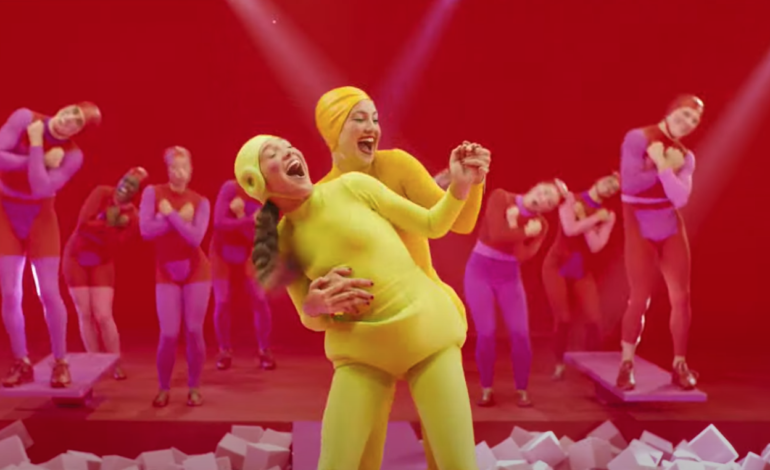Hollywood’s history with Autism and their savior complex
Sia’s Film, “Music,” is proof that Hollywood should be held accountable for contributing harm to the A.S.D. community, and here is why

It is no secret that Hollywood has had issues when it comes to representing various marginalized groups of people for decades. This issue has been far more discernible with people of color than anything. An example of this being when Tyler Perry’s Madea films highlighted the negative stereotypes of Black people or “Breakfast At Tiffany’s” for Asian people. While they have progressed recently with certain demographics with films such as Marvel’s “Black Panther” or the 1993 film “The Joy Luck Club,” Hollywood still has a lot of work to do.
While people of color and (to a certain extent) members of the LGBTQIA+ community have had their respective days in the sun, Those on the autism spectrum have yet to do so. Whenever they are on screen, they are portrayed via Inspiration Porn. Inspiration Porn is well-meaning but, it is infantilizing and harmful to the group in question. The film/show usually starts as grey and morose: The main character is often a tragic figure due to their disability (which is often portrayed in a mournful light), and the plot is advanced by a caretaker who assumes the role of a savior.
A perfect example of Inspiration Porn is Sia’s latest film, “Music,” where the title character, who is a non-verbally autistic girl, is portrayed by Maddie Zeigler. When the trailer for the film premiered, Sia received massive backlash from the autistic community.. and rightfully so. Maddie’s portrayal of Music was absolutely reprehensible: Her mannerisms were horrifically exaggerated, the musical sequences created a sensory overload (bright colors and flashing lights), and her meltdowns are horribly mishandled throughout the film via aggressive depictions of people restraining her. Sia’s handling of the valid criticisms she received was also poor: when asked why she didn’t cast an autistic actor for the film, she doubled down on her choice of her goddaughter, Maddie. She kept doubling down on her decisions on Twitter and even told an autistic actor that she was “probably a bad actor.” Multiple sources also reported that Zeigler was uncomfortable with the role, and Sia continued to coerce her into the role.


To further salt the wound, Music takes a backseat to her own movie. The character that really drives the plot is Kate Hudson’s character, Kazu, Music’s sister. Kazu is a drug addict who ends up caring for Music after their grandmother dies. Once the plot kicks in, so does the film’s savior complex, which, along with its horrid depictions of autism, continues to send a harmful message to people on the autistic spectrum. The film is not about the autistic character but the caretaker. “Music” is essentially a white savior film but for people on the spectrum instead of people of color.

The film also depicts people restraining her during meltdowns or, as Leslie Odom Jr’s character puts it: “crushing her with their love.” Anyone in their right mind would know that pinning or restraining someone is not only wrong but dangerous. It is traumatic for the child, further worsens the situation, and could potentially kill the child. Restraining someone with a disability doesn't teach them anything either, save for fear of the person restraining them. Sia didn't even acknowledge that this was an issue (despite doing 3 years of “research”) until community organizations such as ASAN (The Autistic Self Advocacy Network) rightfully condemned the film for depicting and encouraging that kind of behavior (among other reasons). By the time she apologized, it was far too little, far too late.

While it is unfortunately rare, films/TV shows have done a pretty good job of representing those on the autism spectrum. Examples include Billy Cranston/ The Blue Ranger in the 2017 “Power Rangers” film, Julia from “Sesame Street”, & Claire Danes’ portrayal of Temple Grandin in the HBO film, “Temple Grandin.” All three examples have one thing in common: The characters are portrayed in good taste. Billy Cranston’s inclusion further adds to the welcome amount of diversity in the cast of “Power Rangers” and confirms his ASD without turning the film into a 2 hour PSA. Julia’s creation in “Sesame Street” benefitted from the show’s consultation with ASAN and is also portrayed by a woman who has a son with ASD. As for Claire Danes as Temple Grandin, Dr. Temple Grandin herself was brought on set to oversee the film. As a matter of fact, She actually picked Claire Danes to play her in the lead role. Danes dove into research, read Dr. Grandin’s books, studied recordings, and even spent time with Temple herself to give an authentic performance. While these films may not be perfect, they made their respective characters human and portrayed autism in a classy manner.

So, how do we improve on autistic representation? First off, either cast an autistic actor or (if you're not) make sure that their portrayal is in good taste. Second, Listen to the community you're trying to represent. Sia did none of those: She cast Maddie because she couldn't be bothered to work with an autistic actress. When the autism community confronted her on Twitter, She blatantly disregarded what they had to say and doubled down on her wrongdoing. The depictions of autism in “Music” are abhorrently hyperbolized and unquestionably barbaric. The display of someone restraining an autistic person is not “crushing someone with their love”; it is an act of violence. If you are going to represent any group of people (Race, Gender, Creed, Sexual Orientation, and/or disability), please have some class and do it right.
To paraphrase a slogan for the disability rights movement: Nothing that is without us will ever be about us.
